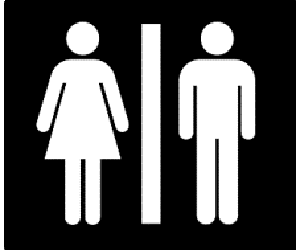Cuba legalizes rent-a-toilets in its effort to expand private business
- Submitted by: lena campos
- Society
- 10 / 31 / 2013

Pushing on with its effort to open its economy to market forces, the Cuban government Thursday legalized the business of renting out public bathrooms, providing fixed prices for five categories of facilities.
A pilot rent-a-toilet program, which was started in 2011 in Havana province, now has been expanded to the entire island.
It allows the rental of state-owned bathrooms to private persons who hold government licenses as “public bathroom attendants” — one of 182 categories of self employment permitted by the government.
Details of the change were contained in a seven-page resolution signed by Minister of the Economy and Planning Adel Yzquierdo Rodriguez and published in the latest edition of the Official Gazette.
Cuban President Raúl Castro has been pushing to make the island’s Soviet-styled economy more efficient, largely by allowing more private enterprise and cutting government spending and payrolls, since he officially succeeded brother Fidel in 2008.
The number of public bathrooms in Cuba is unknown. Most are presumed to be in cities and towns, and many are known to be in dire condition.
The price for using a toilet, urinal or washbasin will be one Cuban peso, or about four U.S. cents, according to the regulations. Prices for additional services such as “perfumes, talcum powders, cosmetics, soap, showers, among others, are set by supply and demand,” although the renters must notify the municipalities of the services they offer.
Renters must pay for the water and electricity used at residential rates and guarantee “quality, hygiene and good customer service,” the regulations added. Toilet facilities cannot be subleased or used for any other activity.
The complicated process require technicians from communal services departments of municipal governments, working with current bathroom attendants, to study the activity at each site in order to establish its potential revenue.
Monitors must then write and sign reports listing the location, date, time of start and end of study, number of people who used the bathroom, pesos collected and other services offered. The reports go to the municipalities and local tax offices.
Rents will be pegged to expected revenues, although the first year’s payments will be forgiven “as a stimulus to guarantee the improvement of the bathrooms and their hygiene,” according to the regulations.
Based on the technicians’ reports, each bathroom will be placed in one of five categories, with those that bring in less than 69 pesos daily in the lowest category and those whose revenues top 259 pesos a day in the highest category.
Rents will be charged accordingly.
Source: Miami Herald.com
Comments